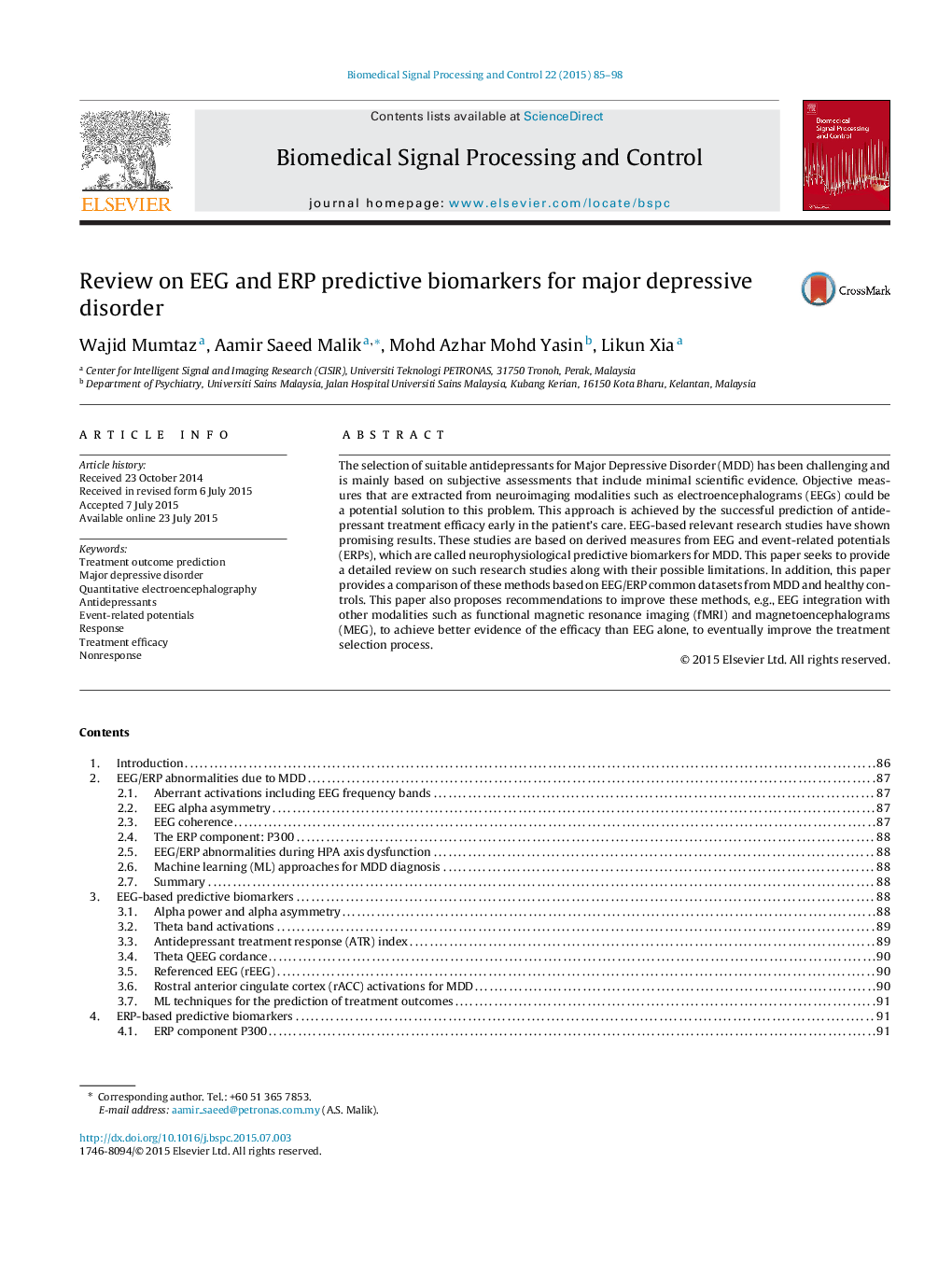| Article ID | Journal | Published Year | Pages | File Type |
|---|---|---|---|---|
| 557576 | Biomedical Signal Processing and Control | 2015 | 14 Pages |
•Studies involving aberrant EEG/ERP features used for MDD diagnosis are discussed.•EEG/ERP studies involving prediction of treatment outcome for MDD are illustrated.•EEG/ERP features are tested on common dataset for diagnosis and treatment prediction.
The selection of suitable antidepressants for Major Depressive Disorder (MDD) has been challenging and is mainly based on subjective assessments that include minimal scientific evidence. Objective measures that are extracted from neuroimaging modalities such as electroencephalograms (EEGs) could be a potential solution to this problem. This approach is achieved by the successful prediction of antidepressant treatment efficacy early in the patient's care. EEG-based relevant research studies have shown promising results. These studies are based on derived measures from EEG and event-related potentials (ERPs), which are called neurophysiological predictive biomarkers for MDD. This paper seeks to provide a detailed review on such research studies along with their possible limitations. In addition, this paper provides a comparison of these methods based on EEG/ERP common datasets from MDD and healthy controls. This paper also proposes recommendations to improve these methods, e.g., EEG integration with other modalities such as functional magnetic resonance imaging (fMRI) and magnetoencephalograms (MEG), to achieve better evidence of the efficacy than EEG alone, to eventually improve the treatment selection process.
